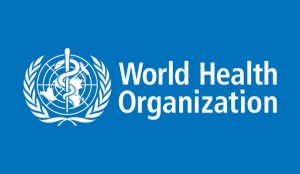sanews.gov.za the South African Government press release website published the following South African Government opinion about US President Obama:
If anything, US President Barack Obama needs to use this week’s first US-Africa Leaders’ Summit in Washington to throw his weight behind the extension of the Africa Growth Opportunities Act (AGOA) for another 15 years.
And if Obama really cares about Africa’s growth and development, he also needs to come out in support of South Africa’s inclusion to any new term of AGOA when the current one expires next year. As Africa’s central point of growth and country that gives opportunities to the rest of Africa, South Africa cannot be excluded from AGOA as some lobbyists in the United States wish.
Their argument is that South Africa is well off as compared to other African countries who are beneficiaries of the Act and that Pretoria should “graduate” out of the programme. Granted, South Africa is a big player on the continent, but it’s still a developing country or what some refer to as a middle income country.
What shape a new AGOA deal should take can be negotiated. The African Union argues for instance that, in the event AGOA is extended beyond 2015, several issues need to be addressed in order to improve the participation of African countries in the scheme, as exports to the US benefiting under the current scheme are highly concentrated in a handful of countries and goods. I agree with this view. But excluding countries like South Africa from the programme will send a wrong message that if you succeed; the United States will dump you. You can’t help Africa when you take South Africa out of Africa.
When Bill Clinton signed the AGOA into law in the last months of his presidency, his plan was to break down the barriers to trade between African countries and the US. Clinton knew that one of the most important tools for development is trade and AGOA had given Africa countries access to US markets.
It is my view that Obama needs to see that this vision is carried through. Since its inception in 2002, AGOA has achieved a great deal for both the United States and African countries that benefit from it. Its work is not yet completed. AGOA emphasises on Africa’s emerging textile and apparel industry as the primary sector for trade benefits. This sector is considered to hold the highest potential of fostering Africa’s export competitiveness and export led pro-poor growth by generating greater employment due to its relative labour-intensiveness. According to the African Union, overall US imports have increased almost five-fold since the entry into force of the AGOA, from 5 billion US dollars to over 25 billion dollars in 2005. During 2005-2010, imports have been fluctuating significantly, decreasing markedly between 2005 and 2006 to 21.2 billion dollars.
Recent statistics indicate that imports from AGOA-eligible countries have increased each year since the enactment of the law. Nigeria, Chad, South Africa, Angola and Gabon are indicated as having accrued the lion’s share of these benefits. Through the AGOA, South Africa has exported significant quantities of manufactured goods – most notably about 60 000 vehicles a year. Imports from AGOA nations grew by 300 per cent. The US has also had a share in the benefits. For instance, as US Secretary of State John Kerry pointed out this week, AGOA has made it possible for Ford Motor Company to export engines duty-free from South Africa, where Ford has invested over $300 million so they can supply engines worldwide.
Africa faces several dangers if AGOA is not renewed. Jobs are likely to be lost and benefiting countries will most likely lose both traditional and newly gained markets to competitors once preferences expire. As the AU pointed in 2010, most of the textile manufacturing companies have established themselves in export processing zones attracted by tax exemptions and other incentives mostly offered by AGOA.
Africa has the resources to offer and all it wants is access to markets and with as little trade barriers as possible, impeding that. The US is a rich market. The country’s law makers need to further open that market to Africa as Clinton began doing in 2002. – SAnews.gov.za









